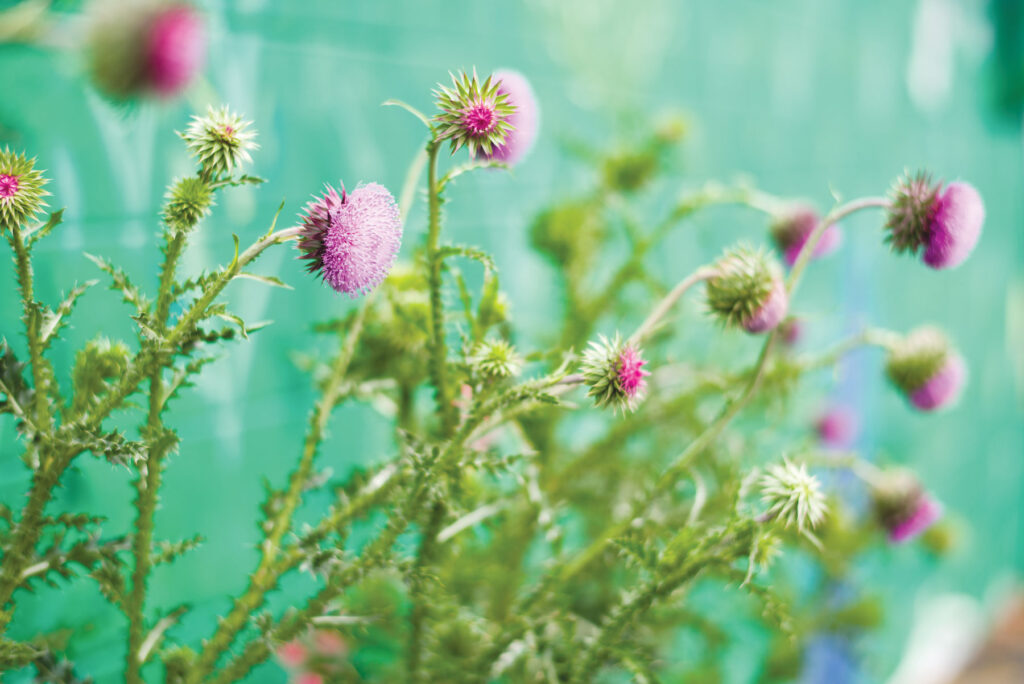Advertisement
Social Justice Crusader Proves That Love Heals
A unique program helps women heal

When Becca Stevens started what would become Thistle Farms nearly two decades ago, she didn’t know much about making natural bath and body products as a business model.
“I grew up with a woman who really knew about making crafts,” she says of her mother. “And I had experience taking a lot of baths,” she jokes modestly.
Those early days—with groups of women gathered around a table or counter, making candles, lip balm and body bombs—“felt like a quilting bee,” Stevens remembers. “The point was economic empowerment. We would tell stories and weep. It was a blast.”
Today, Thistle Farms is not just a natural bath products company, and it’s far from a quilting bee; plus, Stevens has far more experience under her belt than just taking baths. Thistle Farms is an international nonprofit social justice powerhouse, helping women who have endured hardships like prostitution, sex trafficking, abuse and addiction.
The nonprofit that Stevens started in 1997 was a small initiative. Then called Magdalene, it was one house that became a home for five women looking to leave lives of prostitution. They could stay for free for up to two years, getting help they needed—from counseling sessions to dental appointments to jobs to community support and friendship.

Soon, it became clear to Stevens that she was onto something. She sold the house to buy a bigger house. The company expanded (under the name Thistle Farms) to make the candles and body products that, in turn, created jobs for the women and a social justice brand for people to support.
“The very first time I did a capital campaign and raised $1 million for a house, at that point, I decided, ‘I do not want to spend my life dreaming small,’” Stevens says. Since it was relatively easy to hit that seven-figure number—“it wasn’t hard, people want to hope with you”—she realized it was time to expand her vision.
Today, through several different initiatives, Thistle Farms provides outreach to more than 700 women and has a waiting list for the 30 to 35 spots in its residence program. More than 1,800 women are employed and assisted through its international sister organizations, like one in Rwanda that makes all-natural bug sprays. The brand’s simple purple packaging has become iconic in Nashville. “I think I have this niche where arts and crafts and justice come together,” Stevens says.
An Episcopal priest and now the author of several books, Stevens started Thistle Farms in Nashville, where her husband, Marcus Hummon, is a Grammy-winning songwriter. It is where they raised their three sons: Levi, Caney (named after a river in Tennessee) and Moses, who are now artists and justice workers in their own right, she says, relishing what she calls “the freedom for your family to be who they are.”
Thistle Farms is the umbrella organization with several vertically integrated nonprofits, including Magdalene (the original name of the organization in 1997, which now refers specifically to the residential program), Thistle Farms Bath & Body Care Product Line, Thistle Stop Café (a sandwich and tea shop in Music City), a global marketplace, a studio workshop and a national education and training center.
These initiatives have been successful, and Thistle Farms has grown rapidly (gross sales are more than $1.5 million, and Stevens was nominated as a 2016 CNN Hero). But Stevens acknowledges that it isn’t a panacea. Recidivism is a fact of life: Women who have battled addiction may drink or go back to drugs. Others return to abusive relationships or to prostitution.
So, the work continues. The decision to make Thistle Farms’s bath and body products from natural and organic ingredients was intentional early on. “I want to be as kind to the earth as I can be and kind to our bodies, too,” Stevens says.
Of course, Stevens no longer gets to make candles and bath products along with the women she helps. She’s looking forward to expanding Thistle Farms’s reach. A new partnership in Greece will help women (many of them refugees who traveled to safety by boat) to weave pieces of used life jackets into welcome mats. The mats, which have a symbolic appeal, will be sold to create income opportunities for women refugees.
In June, Thistle Farms will host a national conference in Nashville, centered on programs for survivors of trafficking. Conference attendance will be capped at 400 attendees, and Stevens expects the event to be sold out.
Stevens realizes that the current political climate in the United States may change attitudes about her social justice work. But she remains focused on her mission: “I am unwavering. I am not reactive. I am not undone. I am not swayed.”
Why thistles?
Considered weeds, thistles thrive in unlikely places, including the alleys and streets traversed by the women of Thistle Farms. Although thistles appear prickly, their soft purple flowers are a testament to resilient beauty.
PHOTOS BY Peggy Napier





